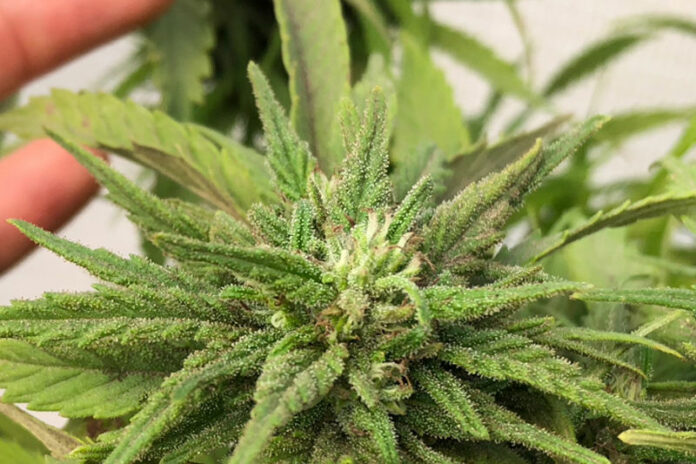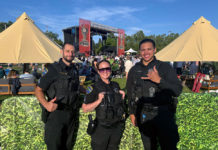On Jan. 1 something changed in the air in Sonoma County. While some communities welcomed the first official day of adult-use cannabis legalization, not everyone was “waking and baking” that morning.
In 2016 voters approved the legalization of recreational marijuana by means of Proposition 64, the Adult Use of Marijuana Act (AUMA). In the aftershock, government leaders have spent hours upon hours in council chambers and district supervisor meetings reviewing ordinances, listening to community members and business owners and trying to figure out how to regulate cannabis in a way that is fair for everyone.
That’s a tall order for a potentially multi-billion dollar industry that’s more-or-less been hiding in the bushes for the last century. Eight months after the end of prohibition, cities and towns in Sonoma County are still acting under the state’s emergency cannabis ordinance and will do so until the end of the year.
The AUMA legalized the commercial sale, distribution and production of cannabis for adult use at state-licensed facilities under the Medical and Adult Use of Cannabis Regulation and Safety Act
(MAUCRSA).
However, under state law, local city and county governments can restrict or ban cannabis businesses in their jurisdictions. As for cannabis use, the AUMA allows adults 21 and over to possess, privately use and give away up to one ounce of cannabis, and to cultivate six plants for personal use at their residence.
In the county, each city has its own unique attitude on the cannabis issue. The following is an analysis of current cannabis rules and regulations in Sebastopol, Windsor, Cloverdale and Healdsburg.
Sebastopol
It’s no surprise that west county’s lighthouse to hippie culture, Sebastopol, was one of the first cities in the county to welcome cannabis businesses. Sebastopol City Manager Larry McLaughlin said as far as he was aware, Sebastopolians support the legalization of adult-use cannabis.
“I have not received any negative comments or concerns from any residents,” he said.
In fact the city encourages new types of cannabis-related business enterprises. The city currently has two dispensaries, Solful and SPARC Peace in Medicine, approved for medical and adult use; and two type 6 (for extraction using a mechanical method or non-volatile solvent) cannabis manufacturing facilities.
In order to stay proactive the city adopted a comprehensive cannabis ordinance in March, which replaced the urgency cannabis ordinance adopted in December, 2017.
McLaughlin said the city allows a variety of cannabis businesses, such as dispensary retailer (medical and/or adult use), cannabis retailer delivery (office only), cultivation, cultivation nursery, microbusiness, testing and laboratories, manufacturing (processing, packaging and labeling), distribution and warehousing.
“There are no substantive changes proposed to the cannabis ordinance at the moment, but there has been some basic initial discussion regarding the possibility of tasting rooms,” McLaughlin said.
Cannabis delivery is allowed into the city and each residence is allowed up to six plants, indoor or outdoor.
Windsor
The Town of Windsor’s response to the passage of Prop. 64 has been rather strong, but not surprising. Police Chief Carlos Basurto said so far there has not been any significant changes in Windsor involving marijuana.
“Mostly, because Windsor passed an ordinance banning all retail sales of marijuana, marijuana products and marijuana accessories, nor do we allow outdoor cultivation,” he said.
That pretty much sums up the attitude of a majority of the town’s leadership when it comes to adult-use cannabis. Among the few changes as a result of the legalization of recreational cannabis, is the recent cannabis training Basurto and his sergeants completed.
Basurto said the training was to become more familiar with the new cannabis laws, but mostly to better assist the town with permitting and regulating of legal indoor grows that might occur within the town.
Residents of the town have the option to grow up to six plants per residence, but it has to be indoors only. There is another option for those who don’t feel like driving out of town to get their cannabis — they can call it in.
Basurto said distribution facilities are not allowed; however, deliveries can be made by licensed and permitted individuals.
Cloverdale
Interest in cannabis is only increasing in the county’s most northern city. “Cannabis is here,” said Cloverdale City Manager David Kelley. “We want to integrate it into our community in a way that is safe and acceptable.”
In September 2017, the city council approved a cannabis ordinance allowing permission for adult-use cannabis businesses to open doors in the city, including manufacturing, testing, distribution, delivery (non-storefront) and microbusinesses but within certain zones only.
The city has reviewed five cannabis business applications to date. In March one dispensary was approved, Red Door Remedies. One more spot is available for a dispensary, but the controversial issue has forced the council to bring its cannabis ordinance back for review.
Kelley said public policy in regards to cannabis is comparable to the “Goldilocks” concept of trying to find the perfect fit. “Cannabis is a whole new arena,” he said. “It’s been challenging to address all the issues.”
Another hot topic in Cloverdale is whether the city will allow a cannabis event at the historic Citrus Fairgrounds. Kelley said the decision will be determined as the council updates the cannabis ordinance.
Residents are allowed to grow six plants, indoors only, and are allowed to call in delivery for their cannabis.
Healdsburg
Nothing much has changed in the last eight months in the tourist-friendly boutique town of Healdsburg. City Manager David Mickaelian said the city has taken a back seat stance on the issue. “The city took the approach of ‘wait and see’ and we are still that mode,” he said.
Currently, Healdsburg prohibits dispensaries or any other cannabis businesses. In mid-2017 the city updated its marijuana ordinance with tight restrictions, including that the cultivation of marijuana is not allowed within 300 feet of a hospital, church, school, park or playground, child care center, recreation center or youth center.
It also prohibits smoking or ingesting marijuana in any public place or within 1,000 feet of a school or any location where tobacco is prohibited.
Mickaelian said during the city’s annual goal setting meeting in March, cannabis was not a significant issue. “That was not one of the things on the list,” he said.
In a recent interview, Healdsburg Mayor Brigette Mansell said the council has spoken with Sebastopol and Cloverdale government officials about their methods. Mansell said the main reason the city continues the ban on cannabis businesses is that not enough community members have come forward to argue the decision.
As of now, adult residents can grow up to six plants per residence, indoors only, and call in for a delivery.
Driving and cannabis
In each jurisdiction, the warning from law enforcement is the same, don’t toke (or eat) and drive. The penalties for driving under the influence of marijuana are exactly the same as for DUI of alcoholic beverages. The charge is the same, Driving Under the Influence, 23152(a) of the California Vehicle Code, whether it is alcoholic beverages or drugs. Under the new state law, adults are allowed to transport up to one ounce of cannabis and eight grams of concentrated cannabis.
Delivery options
For residents who live in one of the areas more restrictive on cannabis, there are a plethora of cannabis delivery businesses in Sonoma County; however, most are near Santa Rosa along Highway 101. Delivery can be expensive, and many require buyers to provide a state-issued medical cannabis card. Most delivery services have a standard minimum of around $50.









